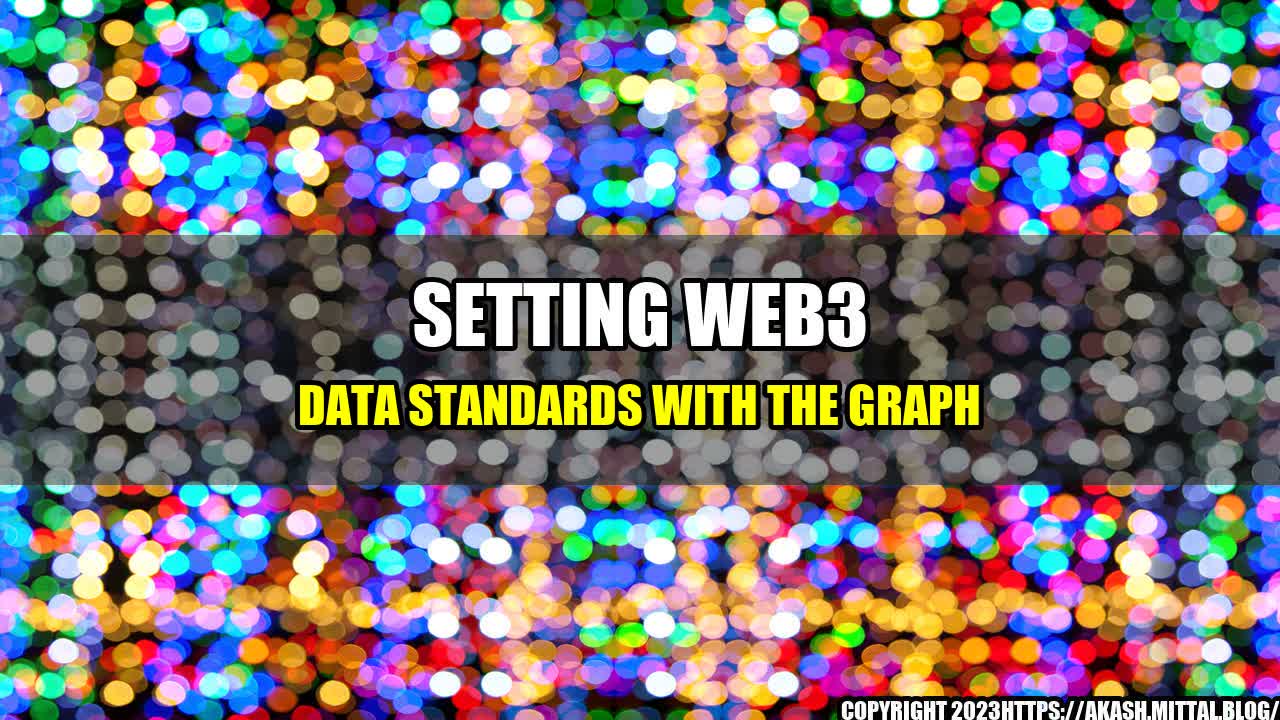Setting Web3 Data Standards with The Graph

Blockchain technology promises to revolutionize many industries by providing decentralized, secure, and transparent systems. However, one of the main challenges of blockchain development is dealing with data. Traditional databases rely on centralized servers, which have high availability and scalability, but sacrifice security and privacy. With blockchain, data is stored in a decentralized and immutable way, but this also makes it harder to access and query. Fortunately, The Graph is solving this problem by setting web3 data standards.
What is The Graph?
The Graph is a decentralized protocol for indexing and querying data from blockchains and decentralized storage networks, such as Ethereum and IPFS. It provides a simple, efficient way for developers to retrieve and process data in their DApps and blockchain projects.
Instead of relying on slow and complex on-chain computations, The Graph indexes data in a scalable and decentralized way by using subgraphs. A subgraph is a set of specifications that define which data to index, how to normalize it, and how to query it. Anyone can create a subgraph and publish it on The Graph Network, where it can be used by developers to build their DApps and blockchain projects.
Why is The Graph Important?
- Efficiency: The Graph makes it easy for developers to access and query data from multiple blockchains and decentralized storage networks, without having to worry about complex and slow on-chain computations. This results in faster, more efficient DApps and blockchain projects.
- Scalability: The Graph uses a decentralized network of nodes to index and query data, which means that it can scale to handle large amounts of data without sacrificing security and decentralization.
- Sustainability: By providing a standard way to index and query data, The Graph reduces development costs and increases interoperability between different DApps and blockchain projects. This makes it easier to build sustainable and interoperable web3 ecosystems.
How to Use The Graph?
Using The Graph is relatively easy and straightforward. Here are the basic steps:
- Create a subgraph specification that defines which data to index, how to normalize it, and how to query it.
- Deploy the subgraph to The Graph Network by using the Graph CLI or deploying it manually.
- Integrate the subgraph into your DApp or blockchain project by using the GraphQL endpoint provided by The Graph. You can use any GraphQL client library, such as Apollo or Relay, to query the data.
- Monitor the usage and performance of your subgraph by using the Graph Explorer or the Graph Dashboard.
Here is an example of how to use The Graph:
| Action | Command |
|---|---|
| Create a subgraph specification | graph init --from-example example |
| Deploy the subgraph to The Graph Network | graph deploy --node https://api.thegraph.com/deploy/ --ipfs https://api.thegraph.com/ipfs/ username/subgraph |
| Integrate the subgraph into your DApp or blockchain project | |
| Query the data from the subgraph | |
| Monitor the usage and performance of your subgraph | https://thegraph.com/explorer/subgraph/username/subgraph |
Of course, this is just a basic example. The Graph can be used for much more complex and powerful applications, such as decentralized exchanges, prediction markets, and identity solutions.
Conclusion
The Graph is a game-changer for web3 data standards. By providing a decentralized protocol for indexing and querying data from blockchains and decentralized storage networks, The Graph makes it easier to build efficient, scalable, and sustainable DApps and blockchain projects. If you are a blockchain developer, you should definitely consider using The Graph in your next project.
- The Graph is setting web3 data standards by providing a decentralized protocol for indexing and querying data from blockchains and decentralized storage networks.
- The Graph is important because it makes it easy to build efficient, scalable, and sustainable DApps and blockchain projects.
- To use The Graph, you need to create a subgraph specification, deploy the subgraph to The Graph Network, integrate the subgraph into your DApp or blockchain project, and monitor the usage and performance of your subgraph.
Curated by Team Akash.Mittal.Blog
Share on Twitter Share on LinkedIn